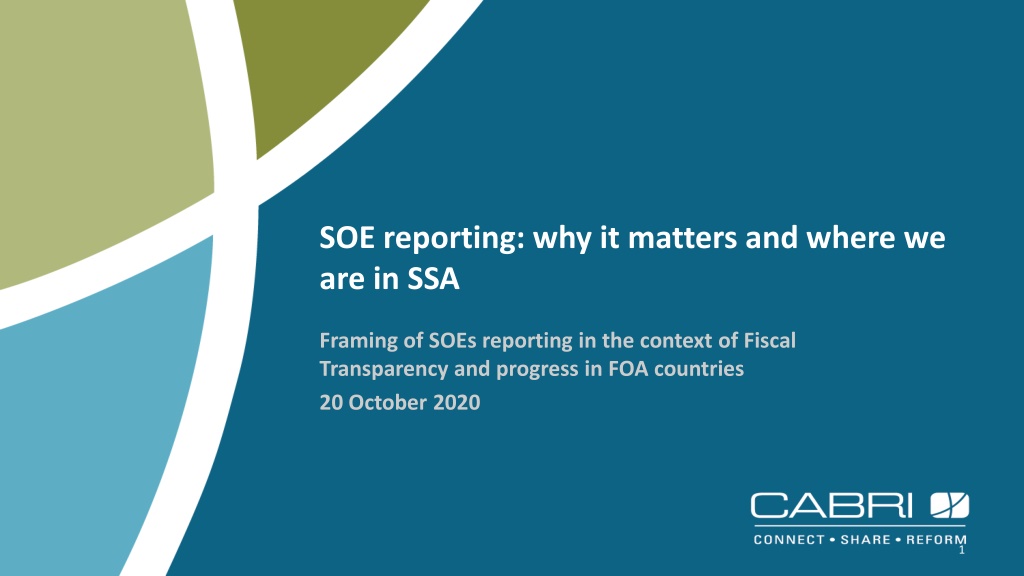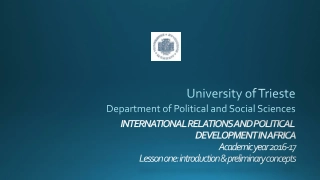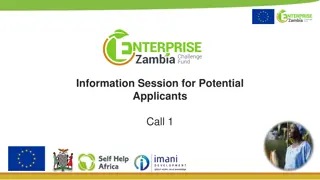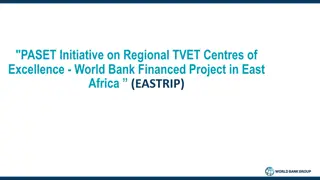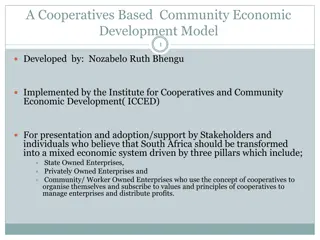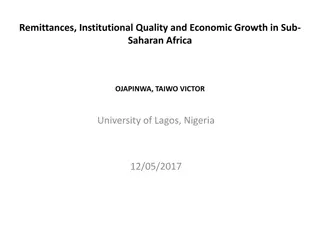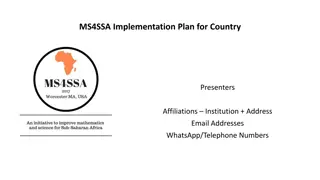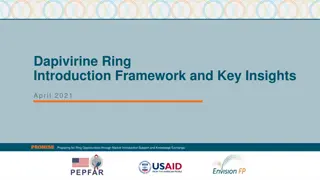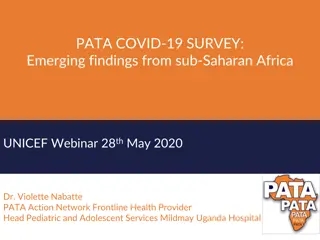Challenges and Importance of State-Owned Enterprise Reporting in Sub-Saharan Africa
State-Owned Enterprises (SOEs) play a significant role in the economy of Sub-Saharan Africa (SSA) but face challenges such as fragmented accounting systems, lack of legal frameworks, and limited data sharing. Timely and accurate reporting is crucial to mitigate fiscal risks, ensure transparency, and enhance accountability. Improving SOE reporting can lead to better financial management, reduced borrowing costs, and increased government credibility.
Download Presentation

Please find below an Image/Link to download the presentation.
The content on the website is provided AS IS for your information and personal use only. It may not be sold, licensed, or shared on other websites without obtaining consent from the author. Download presentation by click this link. If you encounter any issues during the download, it is possible that the publisher has removed the file from their server.
E N D
Presentation Transcript
SOE reporting: why it matters and where we are in SSA Framing of SOEs reporting in the context of Fiscal Transparency and progress in FOA countries 20 October 2020 1
SOE fiscal reporting: why it matters SOES account for significant share of PSBSs in SSA and contribute significantly to revenue in some countries Significant increase in government exposure to contingent liabilities. Over 10% of GDP in some countries Timeous, accurate and comprehensive information on quasi-fiscal activities limits fiscal risk and increases budget credibility It allows: the executive to understand, assess, monitor and fiscal risk, and mitigate against debt distress; the legislature to review performance and ensure efficiency; and citizens to demand accountability for service delivery Transparency, communication and coordination ensures government policies contribute to SOEs commercial viability. Investors charge a premium for uncertainty; without clear and frequent SOE reporting, borrowing costs and reliance on guarantees will increase. 2
SOE reporting: where were at in SSA Absence of legal and regulatory framework Fragmented accounting systems compromise budget estimates and reporting of public entities Unable to verify in-year data as no interfacing monitoring tool Smaller entities lack capacity to report to boards and oversight bodies Contingent liabilities treated as off-balance sheet items, so transparency often neglected Limited information sharing and monitoring of servicing of guaranteed loans Poor quality data on risk, limits continuous risk assessment on financial soundness 3
SOE reporting: where were at in SSA (cont) Not typically subject to accounting and auditing standards. SCOA not commonplace, often lack internal audit function, AFS not subject to an external audit Few countries produce aggregate reports on SOEs, preventing holistic picture of SOE sector Limited access to data prevents improvement of business models and capital structures Ineffective and fragemented information systems inaccurate, outdated, missing, or unusable data) Ineffective institutional structures to collect and analyse information 4
